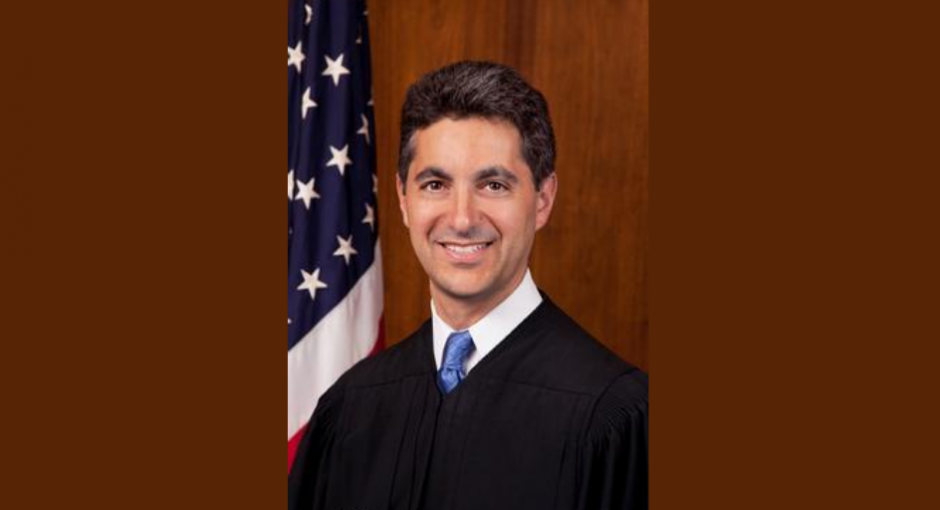A federal district judge ruled today that the U.S. Health and Human Services Department’s (HHS) position that the 340B statute requires drug manufacturers that participate in the 340B program to offer discounts on drugs dispensed by contract pharmacies “is not the sole reasonable interpretation of the statute.”
In a June 16 opinion, U.S. District Judge Leonard Stark denied HHS’s motion to dismiss drug manufacturer AstraZeneca’s lawsuit challenging ex-HHS’s General Counsel Robert Charrow’s December 2020 advisory opinion on 340B contract pharmacy. Charrow’s opinion stated that the 340B statute requires manufacturers to offer drugs at no more than the 340B ceiling price if covered entities use contract pharmacies.
Stark rejected the government’s position, saying there is more than one reasonable interpretation about what the 340B statute requires regarding contract pharmacy.
He said the text of the statute compels neither the government’s interpretation, nor AstraZeneca’s position that covered entities are required by the statute to purchase covered drugs only through in-house pharmacies.
“The point is…that Congress simply has not spoken on the issue,” Stark wrote.
Stark said that both AstraZeneca and the government’s cross motions for summary judgement remain pending. He ordered both sides to submit a joint status report by no later than this Friday, June 18, “setting out their proposal(s) for: (i) what relief the court should grant AstraZeneca based on the analysis provided in the memorandum opinion; (ii) what form of order the court should enter; and (iii) how, if at all, this case should now proceed.”
Stark’s apparent suggestion that it is up to Congress to clarify the 340B statute is certainly going to cause major anxiety among 340B covered entities. Hospital groups, in particular, have been reluctant to open up the 340B law over concerns that additional restrictions or requirements will be added to the statute. Other provider groups including the National Association of Community Health Centers have publicly advocated for amending the law. If 340B providers need to turn to Congress to allow the current contract pharmacy program to continue as is, the drug industry will aggressively fight it. It remains unclear who will ultimately win that fight.
AstraZeneca, Eli Lilly, Sanofi, Novartis, Novo Nordisk, and United Therapeutics during the past year all stopped offering 340B pricing on drugs shipped to contract pharmacies, to varying degrees. AstraZeneca, Lilly, Sanofi, Novartis, and Novo Nordisk are all suing HHS over Charrow’s advisory opinion. Most, if not all, have amended or are in the process of amending their lawsuits to include claims challenging letters they got from the government on May 17 informing them that their contract pharmacy actions are in violation of the 340B statute, and threatening them with civil monetary penalties if they don’t resume offering 340B pricing on drugs shipped to contract pharmacies.
“AstraZeneca is pleased with the Court’s decision,” a company spokesperson said. “The company remains strongly committed to the 340B program and to ensuring that any patient prescribed an AstraZeneca product has access to that medicine. AstraZeneca’s products have been—and will continue to be—available to all covered entities at or below applicable statutory ceiling prices through either their own on-site dispensing pharmacy or a designated contract pharmacy.”
“We are disappointed by today’s U.S. District Court opinion denying the federal government’s motion to dismiss AstraZeneca’s challenge of requirements that manufacturers meet their obligations under the 340B drug pricing program statute,” said Beth Feldpush, Senior Vice President of Policy and Advocacy at America’s Essential Hospitals, an organization of 325 metropolitan safety net hospitals.
“We believe the law is clear: Drug manufacturers must provide 340B discounts on prescription drugs dispensed through any means, including contract pharmacies. AstraZeneca and other manufacturers have skirted these mandates by unlawfully withholding discounts or erecting onerous administrative barriers to providing discounts,” Feldpush said. “Essential hospitals and the health of the low-income patients they serve are at risk from manufacturers’ refusal to comply with their legal obligations under the 340B program, and we will continue to oppose these harmful actions.”


